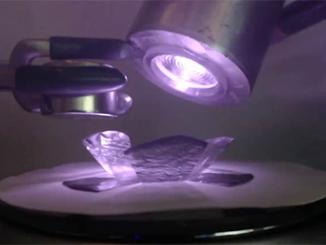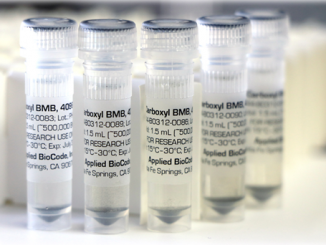Imagion Biosystems Ltd, a biotech company focused on earlier cancer detection through the development of magnetic nanoparticles and highly sensitive detection instruments, now has a commercial line of polymer encapsulated nanoparticles as the latest product in its line of PrecisionMRX brand nanoparticles. At this point they are available for diagnostic research, not patient treatment.

In September, however, the company announced it had achieved a key milestone in its drive to first-in-human testing. It successfully optimized the nanoparticle formulation for its first intended clinical product, a test for the detection of HER2 breast cancer cells in the lymph node and will now move the product forward into clinical development.
Its manufacturing partner will proceed with production of the first batch of the HER2 nanoparticle test reagent which will be used in a toxicology study, a prerequisite to its planned first-in-human study expected to be undertaken in early 2019.

This milestone is a pivotal achievement and represents a significant technical advance in our development plan, said Bob Proulx, executive chairman. As we have previously communicated, optimizing our nanoparticle formulation is a key step in moving us closer to a first-in-human clinical study. The manufacturing of this initial batch of the formulation allows us to conduct our toxicology study and keeps us on track to commence the first-inhuman study early next year.
Meanwhile, the nanoparticles are composed of a polymer-encapsulated 25 nm iron oxide core with a monolayer of methoxypolyethylene glycol. This unique coating acts as a steric barrier to protein adsorption, which results in reduced uptake by macrophages, a feature desired by life scientists seeking improved circulation times for in vivo applications such as magnetic particle imaging. Its slow rate of clearance makes the new product ideal for magnetic particle imaging, the company said.
Imagion is based in San Diego, it also has operations in Melbourne. According to the company, the stealth property of the PEG-coated iron oxide nanoparticles has been reported in pre-clinical studies involving the development of the companys MagSense superparamagnetic relaxometry technology for earlier cancer detection.
The new product became commercially available in December 2017. Like other versions in the product line, the particles are designed for narrow size dispersity, the company said. Each lot is thoroughly characterized for particle size, hydrodynamic diameter, and zeta potential. These lot-specific measurements are recorded on a certificate of analysis, which is included with every product shipment.
For more information, see www.ImagionBiosystems.com.



